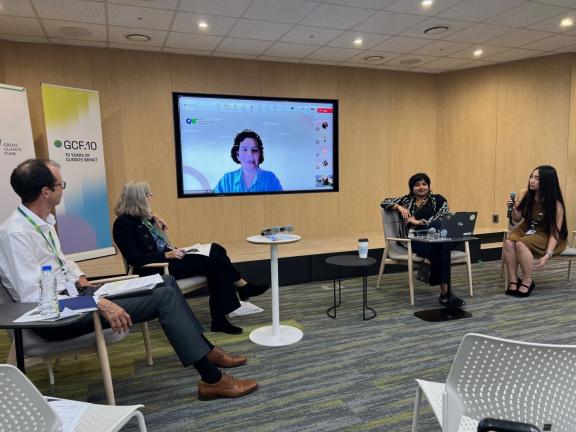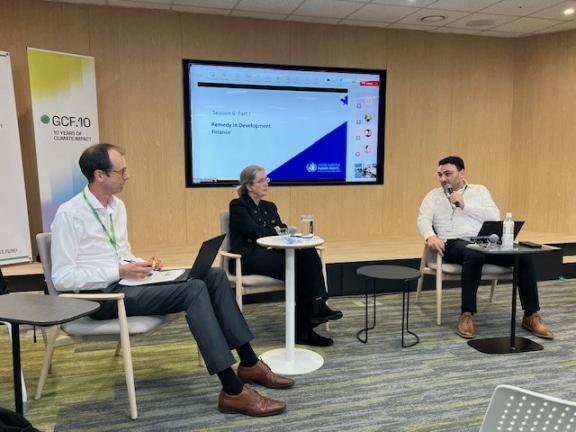Advancing Accountability and Redress: Highlights from the OHCHR Learning Series at GCF
“Human rights are at the core of what we do and how we do it.”
This statement in the opening remarks made by Sonja Derkum, Head of the Independent Redress Mechanism (IRM), set the tone for the recent visit of the Office of the United Nations High Commissioner for Human Rights (OHCHR) to the Green Climate Fund from 23-24 September. The learning series, titled “Promoting and Protecting Human Rights through Environmental and Social Safeguards and Due Diligence”, brought together experts and practitioners to explore how human rights principles intersect with climate finance, and how robust accountability and redress mechanisms can strengthen the impact of GCF-funded activities.
IRM’s Role in Accountability and Redress
The IRM played a central role on day two, contributing to sessions dedicated to grievance redress and remedy frameworks.
Session 5: Designing Effective Grievance Redress Mechanisms

Moderated by Preksha Krishna Kumar, Registrar and Compliance Specialist, this session featured panelists Mac Darrow (OHCHR), Margaret Wachenfeld (OHCHR), and Sintia Yanez (CAF). The discussion focused on the design and effectiveness of grievance redress mechanisms (GRMs) at multiple levels: project, Accredited Entity (AE), and the GCF’s IRM. Panelists emphasised that effective accountability begins with policies that prevent grievances, not just mechanisms for addressing them once they have taken place.
Key takeaways included:
- Prevention First: Accountability is most effective when potential grievances are anticipated and addressed through strong policies and early, meaningful engagement with stakeholders.
- Multi-level Mechanisms: GRMs should be accessible at project, AE, and IRM levels, with clear pathways for escalation and remedy.
- Protection for Complainants: Confidentiality practices and safeguards against retaliation were highlighted as best practices, setting a standard for protecting those who raise concerns.
- Stakeholder Engagement: Ongoing engagement and transparency are essential for risk management and improving project design.
Panelists also discussed the importance of ensuring local GRMs do not impede access to the IRM or other mechanisms, and that meaningful stakeholder engagement is not just a checkbox, but a continuous process that feeds into improving human rights due diligence.
Session 6: Remedying Harms in Climate Finance

Facilitated by Paul Goodwin, Compliance and Policy Lead, alongside Margaret Wachenfeld and Mac Darrow, this session explored the concept of remedy and examined the challenges faced by accountability mechanisms in providing redress. The conversation explored what it means to remedy harms in development finance, why it is important, and how organizations can build frameworks that respond effectively to grievances.
Key takeaways included:
- Defining remedy: Remedying harm is not just about compensation, but ensuring fair, trusted outcomes for those affected by projects.
- Challenges and Opportunities: The session addressed the complexities of building models to assess harms and allocate resources for redress, emphasising the need for ongoing monitoring and early disclosure.
This learning series underscored the importance of embedding human rights in climate finance, from policy design to project implementation and grievance handling. As the GCF continues to strengthen its safeguards and accountability frameworks, the lessons from sessions will help ensure that human rights remain central to climate action.
The GCF and IRM extend sincere thanks to Mac Darrow and Margaret Wachenfeld for their leadership and expertise during this learning series. Their contributions inspired participants to think critically about advancing accountability and redress in climate finance, ensuring that human rights remain at the core of GCF’s mission.
